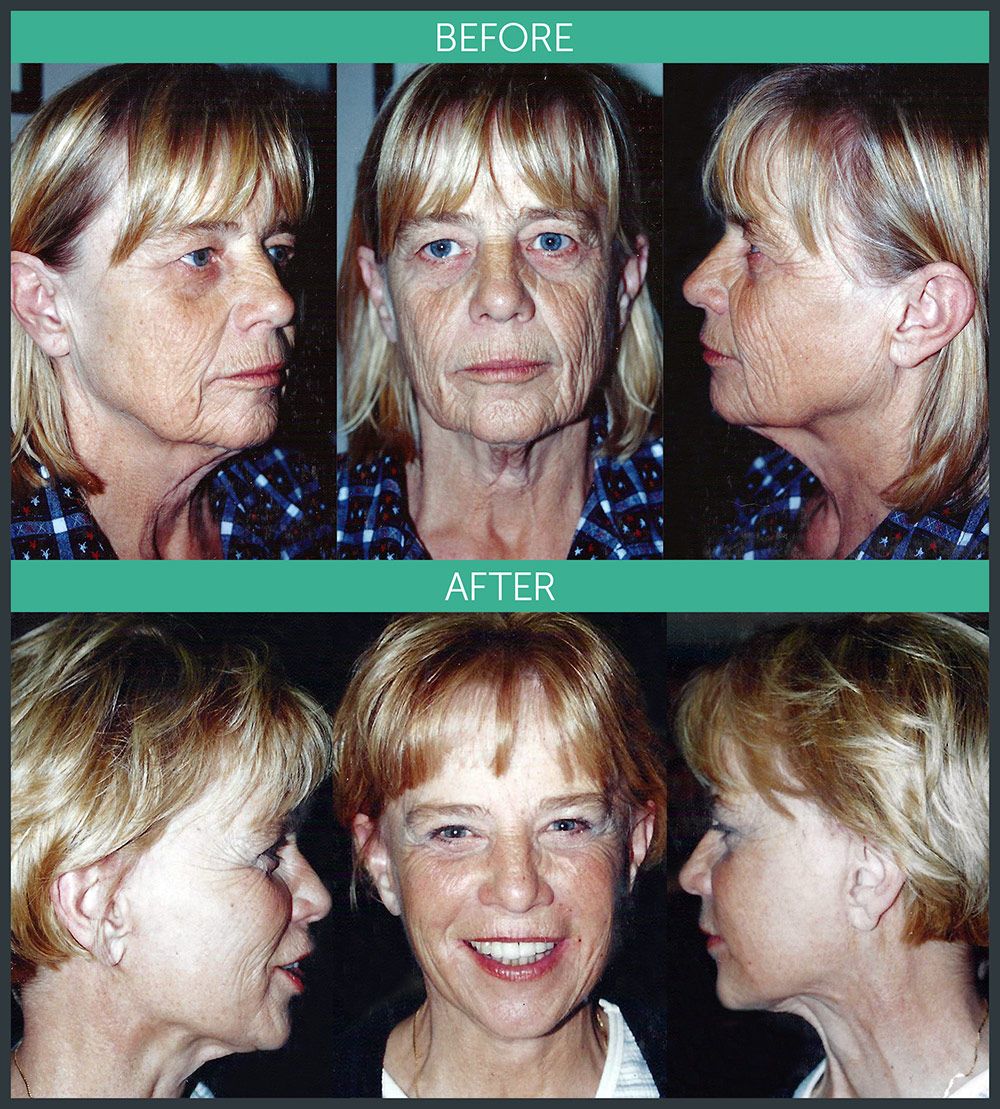Facial Plastic Surgery at Gary Takowsky, MD in Beverly Hills, CA



We offer 100% FREE Consultations! Contact us today to receive a complimentary virtual or in-person consultation. Talk directly to Dr. Takowsky. Call us at (310) 340-2311, or you can easily book your consultation online.
What is a Face Lift?
Face lifts, also known as rhytidectomies, remove wrinkles by tightening the skin around the facial muscle, removing fat, and trimming away excess skin. Depending on your individual facial composition, some areas of your face might need more attention than others. Face lifts are most commonly used to correct the following issues:
- Sagging across the mid face
- Deep wrinkles and bags under your eyes
- Deep creases in the mid-face around your nose and mouth (also known as your nasolabial folds)
- Jowls, due to loss of muscle tone and fat around your jaw
- Saggy deposits of fat in the neck
- Fat and thin skin under the chin and jaw
At Gary Takowsky, MD, we assess your facial structure and target exact areas, helping you reach your individual image goals. Facelifts are often done in conjunction with brow lifts and eyelid surgery (blepharoplasty). While face lifts can make you look 10 -15 years younger, it is important to remember that face lifts cannot prevent the aging process. Overtime, your face may see signs of aging again - in which case, we can easily rejuvenate the area with facial fillers.
Should You Get a Face Lift?
- You often try to hide your aging neck by wearing scarves, sweaters or turtlenecks
- You look older than you feel and avoid mirrors
- You feel like your weathered appearance is negatively impacting your career or personal life
Facelifts can give you the boost of confidence you need to not only look, but feel younger, healthier, and more lively.
Who is a Good Face Lift Candidates?
The ideal facelift candidate:
- Is a man or woman, whose face is sagging, but has some elasticity left in the skin
- Is in good physical and emotional health
- Chooses a facelift for personal reasons and not due to social pressure
- Has good bone structures
- Is not a heavy smoker
Patients with certain medical conditions also might not be eligible for facelifts, especially those that are prone to infection. If you smoke, you will need to stop at least two months prior to surgery and two months after. It is a good idea to quit smoking altogether, since smoking destroys your skin elasticity and causes premature wrinkles.
If you have weak bone structure, you might think about complementary dermal fillings or facial implants to enhance your structure and tighten skin. It is important to have realistic expectations based on the limitations of facelift surgery and your individual conditions. Don’t forget to talk to Dr. Takowsky about your cosmetic goals, before electing for a facelift surgery.
What is the Best Age for Face Lift Surgery?
Types of Face Lift Techniques
Dr. Takowsky uses a range of face lift techniques, depending on your facial anatomy, cosmetic goals, and the amount of time you have for recovery. The degree of invasiveness in a facelift will depend on the type of incision, the number of treated tissue layers, and the targeted area of the face.
Facelifts are usually outpatient procedures. At Gary Takowsky, MD, we have our own surgical suite, where you can choose between IV sedation and general anesthesia. Most facelifts will take around 2 hours, depending on the type of treatment. The most popular types of facelifts, include:
Traditional Facelift
Standard facelifts are performed by making an incision behind the hairline, beginning at the temples and around the front of your ear, thus naturally hiding the incision. Then, we can reposition the deeper tissues under the skin, remove extra skin to smooth out wrinkles, which gets rid of fatty jaws and sagging under the chin.
Mini Facelifts
Mini facelifts use smaller incisions than traditional facelifts to lift the cheeks and correct sagging jowls. Mini facelifts will leave your face less tired looking with a more defined jawline. This type of facelift allows you to treat signs of aging before they get out of hand and need more expansive surgeries in the future.
Deep Plane Lift
Deep plane lifts are common in patients with dramatic facial sagging and loose skin. They are also common for patients looking for a longer-lasting lift, since the results can last for up to 15 years. Results of a deep plane lift are especially visible in the cheeks, nasolabial folds, jawline, and chin.
Midface or Cheek Lifts
For patients with increased sagging around their cheeks, nose, and mouth, midface lifts are a good technique. For this technique, incisions are made at the hairline and inside your mouth. Then, the fatty layers of your mid face will be repositioned over your cheekbones.
This technique can be performed with deep plane lifts or by itself. Sometimes isolated cheek lifts will be done endoscopically, through the lower eyelid, or at the same time as eyelid surgery. Midface lifts have few risks and short downtimes.
Eyelid Surgery - Blepharoplasty in Beverly Hills
Oftentimes, the term “facelift” is used interchangeably with eyelid surgery. Eyelid surgery is not a part of a facelift, but it is often performed alongside of a facelift. If you suffer from droopy, puffy, or saggy eyelids that look worn out, blepharoplasty is a surgery that fixes drooping eyelids by removing skin, muscle, or fat.
As you get older, the muscles around your eyelids get weaker, and your eyelids begin to stretch. Drooping eyelids can negatively affect your vision, as well as make you look older. Blepharoplasty is typically done in conjunction with a browlift or facelift but can also be performed by itself. You can learn more about the ins and outs of eyelid surgery here.
Face Lift Recovery Process
The length of your recovery time for your facelift will be determined on the type of facelift you receive, if there are any complementary treatments, and how well you take care of yourself after the treatment.
Dr. Takowsky will fill you in on what your individual recovery process will be like at your consultation. For the most part, your healing process will follow a similar timeline:
- Day of the procedure: After surgery, you can expect to have bandages on your face, and some swelling and discomfort, which can be controlled with over-the-counter or prescription medication.
- The first week: For a healthy recovery, you should avoid strenuous activities. Try to have some light activity, like walking around the room to get your blood flowing and prevent clots. About 5-7 days after surgery, you will return to have your stitches removed.
- After the first week: You can expect swelling and bruising for a few weeks after your facelift. A lot of people feel healed enough to resume activities about two weeks after their surgery. However, you should avoid heavy lifting, pools, hot tubs, alcohol, makeup, and aspirin. You should also sleep with your head elevated for two weeks after surgery.
- Full recovery: Make sure that you attend all of your follow-up appointments with Dr. Takowsky, so we can carefully assess your progress and prevent complications. As your swelling subsides, you will begin to look younger and less droopy.
Choosing the Right Plastic Surgeon for a Face Lift Surgery
Dr. Gary Takowsky in Beverly Hills has performed countless face lift surgeries with successful results. He practices patient-centered plastic surgery through open communication, comprehensive consultations, and compassionate care. Schedule a consultation today at 323-676-0222.





